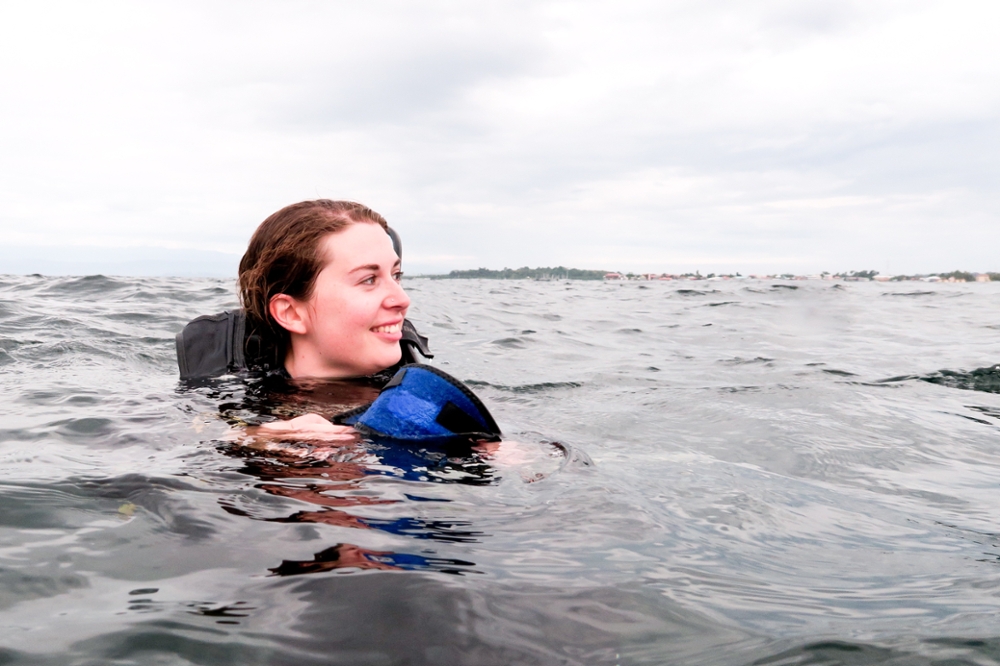COSAM News Articles 2020 February Marie E. Strader, Assistant Research Professor in the Department of Biological Sciences
Marie E. Strader, Assistant Research Professor in the Department of Biological Sciences
Dr. Marie E. Strader joined the Auburn University Department of Biological Sciences as an assistant research professor in August and brings with her the knowledge of an integrative biologist that studies how the environment shapes organismal traits.
Originally from Oregon, Dr. Strader has a Bachelor of Science in biology from the University of Oregon, a Ph.D. in evolution and behavior from the University of Texas at Austin, and was a postdoctoral scholar in the Department of Ecology, Evolution and Marine Biology at the University of California Santa Barbara.
Dr. Strader, who is currently teaching a high-level Genomic Biology course, said she chose to continue her career at Auburn University because she was impressed by the cohesiveness and collegiality of the department of Biological Sciences.
“Everyone seems to be really willing to work together,” said Dr. Strader. “I thought it would be a positive environment for me to work in.”
Dr. Scott Santos, chair of the Department of Biological Sciences, said the department is enthusiastic that Dr. Strader has joined the faculty given the research expertise she brings as well as opportunities for students in the undergraduate marine biology program.
“In fact, I encouraged an undergraduate marine biology student doing research in my laboratory to meet Dr. Strader and consider gaining additional experience in her lab,” shared Dr. Santos. “She did and has been having a great experience.”
Dr. Strader’s research interests span several different areas.
“One is organism environment interactions,” she explained. “I see that as how organisms sense and respond to their specific environment. I’m interested in that from a very mechanistic perspective, looking at molecular pathways and cells. I’m also interested in working on questions related to how organisms acclimate and adapt to a rapidly changing climate. I’m also working on environmental epigenetics, which kind of ties in thinking about mechanisms of adaptation to global change as well as organism environment interaction.”
Her original research background was in genetics and molecular biology and she became interested in applying those kinds of techniques to answering ecological and evolutionary questions.
“That’s what led to my Ph.D. research working on corals,” she said. “That was a really good fit for me because I was able to apply a lot of really interesting genetic and genomic tools to studying coral ecology. Going from there, I have tried to stay in that vein, but I’m also interested in looking at a lot of different types of organismal systems.”
Dr. Strader’s postdoctoral work focused on purple urchins in California kelp forests. She also received a grant for Rapid Response Research (RAPID) from the National Science Foundation to study a massive bleaching event during which half of a healthy reef population died from extreme water heat in the Mo'orea Island of French Polynesia.
She described working in a marine environment as inspirational.
“It’s also an environment that is constantly hammered by human-induced change,” she said. “It’s something that I feel like deserves a lot of attention and it’s very important for us to understand these systems better than we do before they’re gone.”
Latest Headlines
-
04/17/2024
-
04/12/2024
-
04/02/2024
-
04/02/2024
-
04/02/2024

